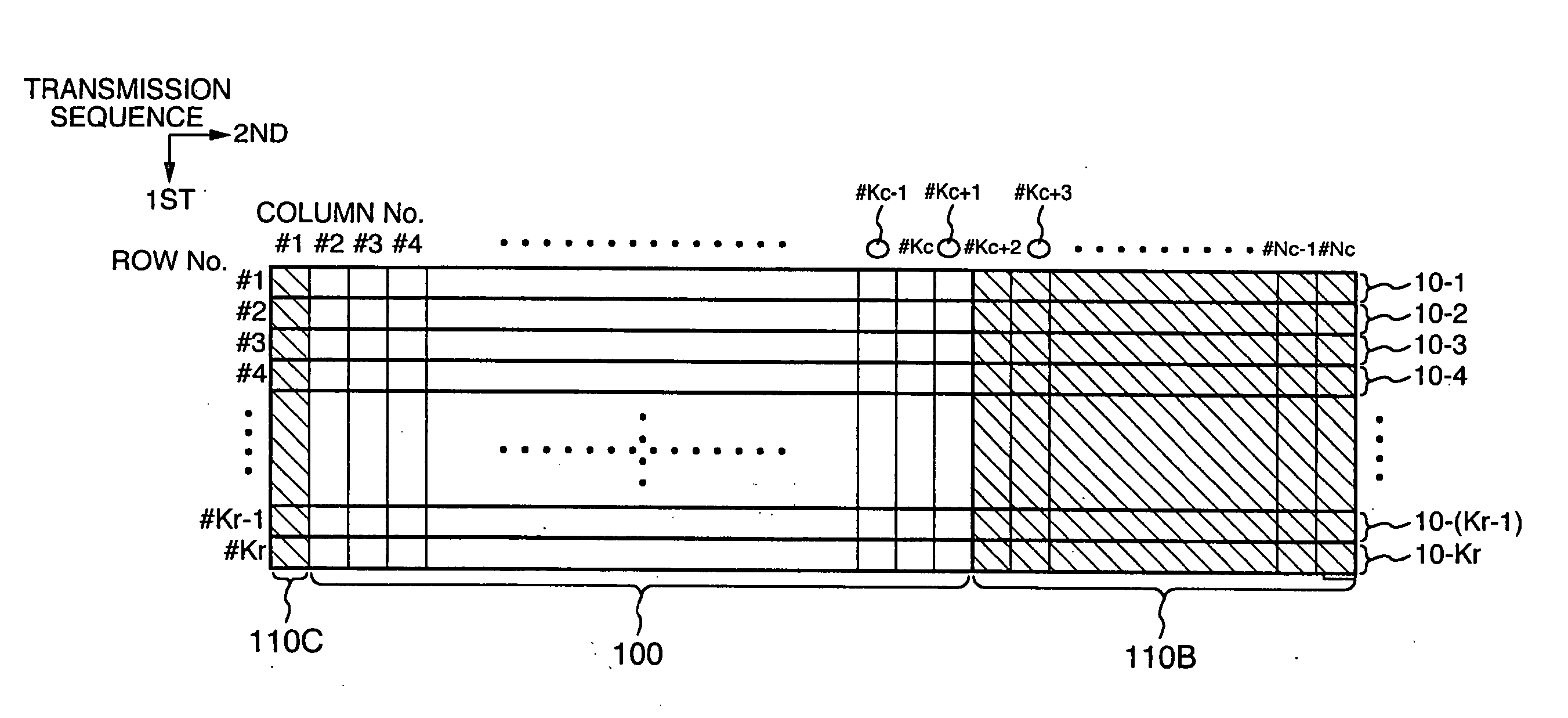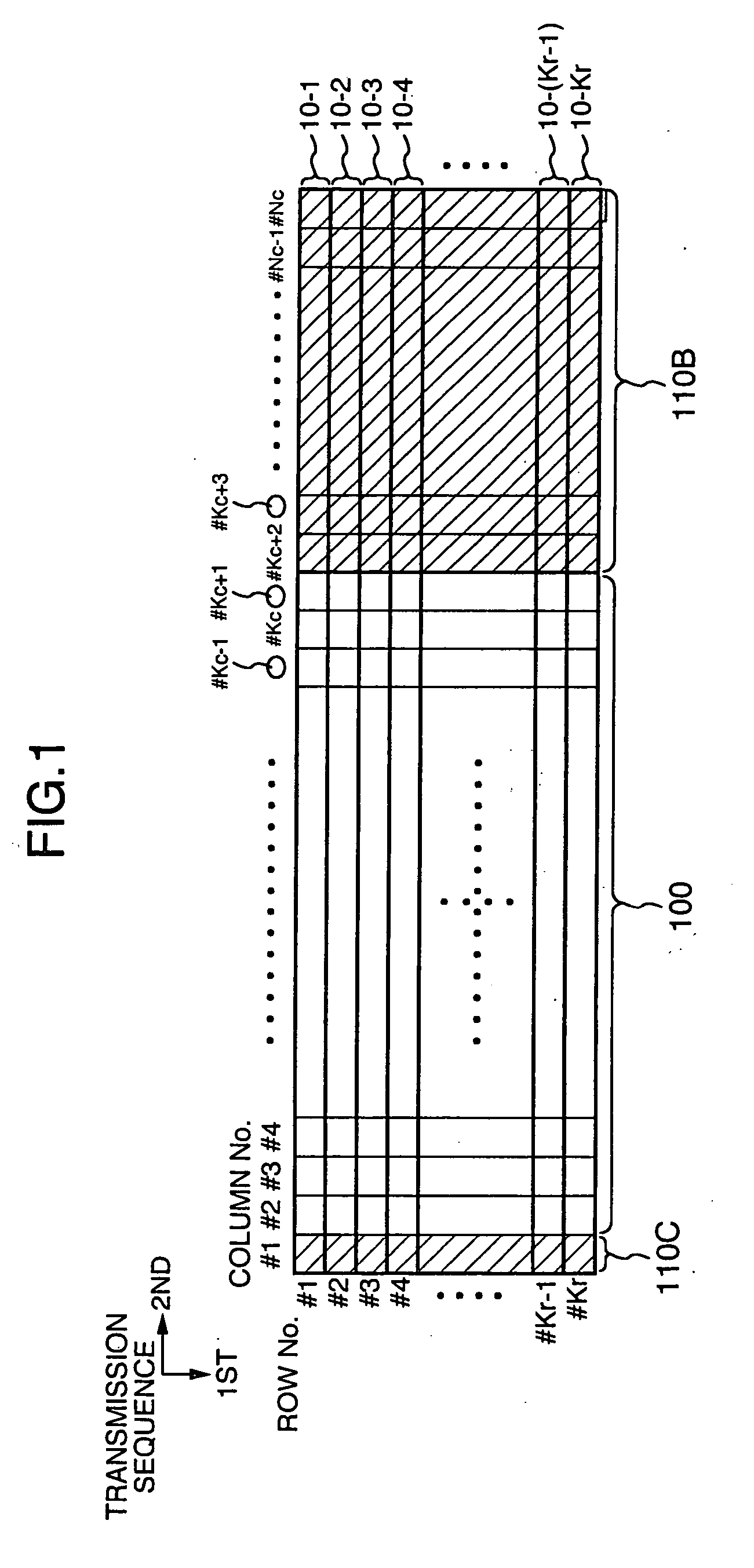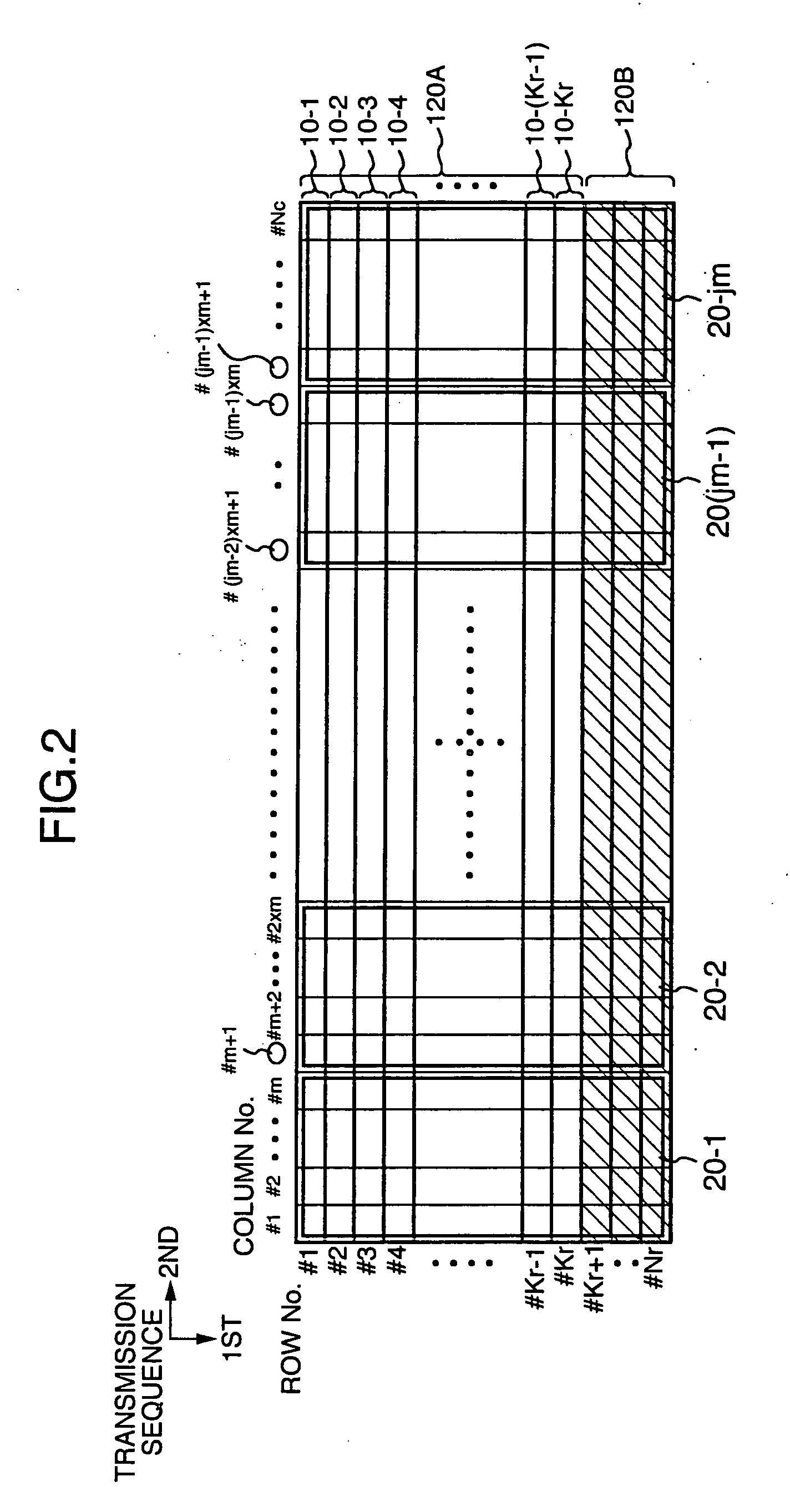Method for encoding/decoding error correcting code, transmitting apparatus and network
a technology of error correction and error correction code, applied in the field of encoding/decoding an error correction code, a transmitting apparatus and a network, can solve the problems of error correction eight-error correction reed-solomon code alone not being sufficient to realize such a compensation, etc., to maximize the transmission distance
- Summary
- Abstract
- Description
- Claims
- Application Information
AI Technical Summary
Benefits of technology
Problems solved by technology
Method used
Image
Examples
first embodiment
[0047] A method of encoding an error correcting code according to one embodiment of the present invention will be described below with reference to FIGS. 1, 2, 20 and 21.
[0048]FIGS. 1 and 2 show an information data area and an encoded area in a frame structure.
(Description of Encoding Side)
[0049] The following description is directed to an encoding side which receives a client signal from a transmission path on a client side, error-correction-encodes the client signal, and then transmits the resulting signal to a super line side as a super FEC signal.
[0050] While the client signal may be either an electric signal or an optical signal in practice, it is assumed herein that, when an optical signal is concerned, the optical signal converted to an electric signal is the client signal.
[0051] A client signal having serial bits arranged on a time series basis is segmented into blocks of (Kr×Kc) bytes (called the “first coded information block”), and each of the first coded informatio...
second embodiment
[0106] A second embodiment of the method for encoding an error correcting code according to the present invention is shown in FIGS. 3 and 4. Here, FIGS. 3 and 4 each show an area for coded data in a frame structure.
[0107] The embodiment shown in FIGS. 3, 4, which are similar to the embodiment shown in FIGS. 1, 2, respectively, is a particular case where Kc=238, Nc=255, Kr=16, and Nr=18.
[0108] Also, with δ=1, a client signal is parallellized to 16 bytes on a byte-by-byte basis. Each of the parallellized 16 bytes corresponds to 16 rows. Also, each byte is parallellized on a bit-by-bit basis, so that the client signal is parallellized to 128 row in consequence.
[0109] When code subblocks 10-i for the C1-encoding comprise 16 subblocks each having a length of 255 bytes corresponding to each of 16 rows, either of the following two can be employed as the C1 code: [0110] an eight-error-correcting RS code (255, 239); and [0111] an eleven-error-correcting shortened BCH code (2040, 1919) bas...
third embodiment
[0126] Another embodiment of the method for encoding an error correcting code according to the present invention is shown in FIGS. 5 and 6. Here, FIGS. 5 and 6 each show an area for coded data in a frame structure.
[0127] The embodiment shown in FIGS. 5, 6, which are similar to the embodiment shown in FIGS. 1, 2, respectively, is a particular case where Kc=232, Nc=256, Kr=56, and Nr=64.
[0128] Also, in a manner similar to the second embodiment, with δ=1, a client signal is parallellized to 56 bytes on a byte-by-byte basis. Each of the parallellized 56 bytes corresponds to 56 rows. Also, each byte is parallellized on a bit-by-bit basis, so that the client signal is parallellized to 448 bits as a consequence.
[0129] When code subblocks 10-i for C1-encoding comprise 56 subblocks each having a length of 256 bytes corresponding to each of 56 rows, either of the following two may be employed as the C1 code: [0130] an eleven-error-correcting RS code (255, 233) which has the last one byte e...
PUM
 Login to View More
Login to View More Abstract
Description
Claims
Application Information
 Login to View More
Login to View More - R&D
- Intellectual Property
- Life Sciences
- Materials
- Tech Scout
- Unparalleled Data Quality
- Higher Quality Content
- 60% Fewer Hallucinations
Browse by: Latest US Patents, China's latest patents, Technical Efficacy Thesaurus, Application Domain, Technology Topic, Popular Technical Reports.
© 2025 PatSnap. All rights reserved.Legal|Privacy policy|Modern Slavery Act Transparency Statement|Sitemap|About US| Contact US: help@patsnap.com



